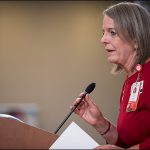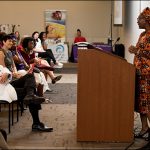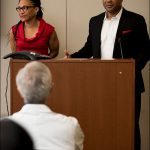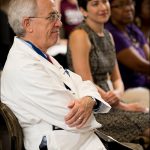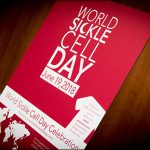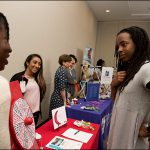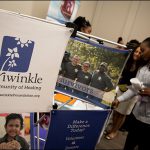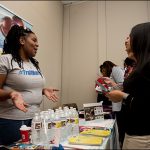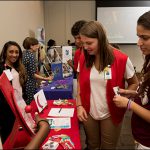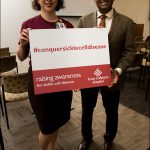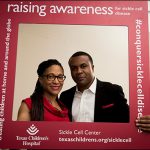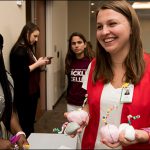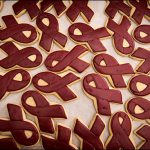Each year in September, Texas Children’s Cancer Center goes gold to honor the courageous journeys of our patients and families who have been touched by pediatric cancer and to create awareness about the challenges these children and their loved ones face. It is also a special time to honor the Cancer Center’s staff and everyone involved in the care and support of those who come to Texas Children’s seeking our aid.
Today, you will hear from patients, family members, doctors and other medical staff as they explain why they Go Gold in September and what makes raising awareness about pediatric cancer so important. Additional comments from staff and Cancer Center supporters will be highlighted on Instagram @oneamazingteam.
Throughout the month, there are several events scheduled across the organization geared toward raising awareness about childhood cancer. Some of those event are listed below. Please check the Connect calendar and the Cancer Center’s Facebook page for additional details. Also, visit the Texas Children’s Blog for Cancer Center related posts throughout the month.
“We are proud to say that our Cancer Center helps children fight and defeat cancer every day,” said Dr. Susan Blaney, director of Texas Children’s Cancer and Hematology Centers. “We hope you will stand with us in Going Gold for childhood cancer, so that together, we can create a healthier future for children in our care.”
Upcoming cancer awareness activities:
- September 4 at 2 p.m. – Main Campus Going Gold Parade and Ribbon Tying Event starting on fourth floor of the Pavilion for Women and ending on The Auxiliary Bridge.
- September 4 at 6 p.m. – Vannie Cook Children’s Clinic in McAllen Going Gold Parade and Ribbon Tying Event
- September 5 at 10:30 a.m. – West Campus Going Gold Parade and Ribbon Tying Event in front of hospital’s main entrance
- September 6 at 10:30 a.m. – The Woodlands Going Gold Parade and Ribbon Tying Event in the main lobby of the hospital
- September 8 at 2 p.m. – The opening of and reception for the Periwinkle Foundation’s Making A Mark exhibit on The Auxiliary Bridge. The exhibit, which highlights the art and creative writing by children touched by cancer and blood disorders at Texas Children’s Cancer and Hematology Centers, will be in the bridge throughout the month.
- September 13, 20 and 27 at 1 p.m. – KPRC Channel 2 will air segments highlighting the Cancer Center.
- September 13-14: International Pediatric Thyroid Cancer Conference in Cullen Auditorium at Baylor College of Medicine.
- September 14 at 10:30 a.m. – Be the Match Patient Walk on the eight floor of the Cancer Center in the Bone Marrow Transplant Unit
- September 16-19 – Houston City Hall will be lit gold
- September 21 – The President of Botswana Mokgweetsi Masisi to visit Cancer Center
- September 25 at 9 a.m. – The annual Hyundai Hope on Wheels Tour will stop at Texas Children’s in support of research and programs that bring us closer to better treatment and possible cures to cancer. The tour is a united effort of Hyundai dealers who travel the country to present Hyundai Scholar grants to children’s hospitals.
To learn more about Texas Children’s Cancer Center, click here.


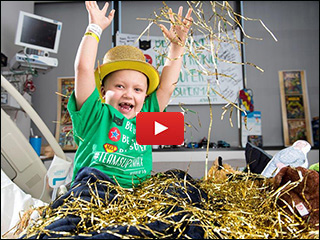
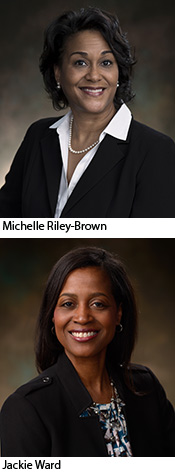 Texas Diversity Magazine recently announced its inaugural Houston Power 50 award recipients, and Texas Children’s Executive Vice President Michelle Riley-Brown and Vice President and Associate Chief Nursing Officer Jackie Ward were among those honored.
Texas Diversity Magazine recently announced its inaugural Houston Power 50 award recipients, and Texas Children’s Executive Vice President Michelle Riley-Brown and Vice President and Associate Chief Nursing Officer Jackie Ward were among those honored. Texas Children’s Cancer and Hematology Centers, Baylor College of Medicine International Pediatric AIDS Initiative at Texas Children’s Hospital (BIPAI) and several global partners recently celebrated the graduation of the first class of the East African Pediatric Hematology and Oncology Fellowship Program at Makerere University College of Health Sciences.
Texas Children’s Cancer and Hematology Centers, Baylor College of Medicine International Pediatric AIDS Initiative at Texas Children’s Hospital (BIPAI) and several global partners recently celebrated the graduation of the first class of the East African Pediatric Hematology and Oncology Fellowship Program at Makerere University College of Health Sciences.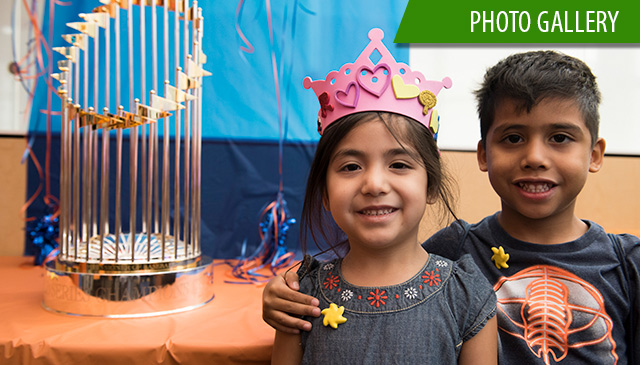




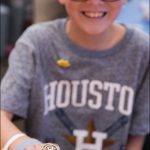
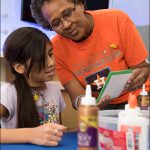



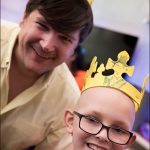

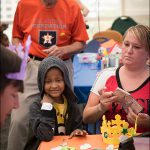

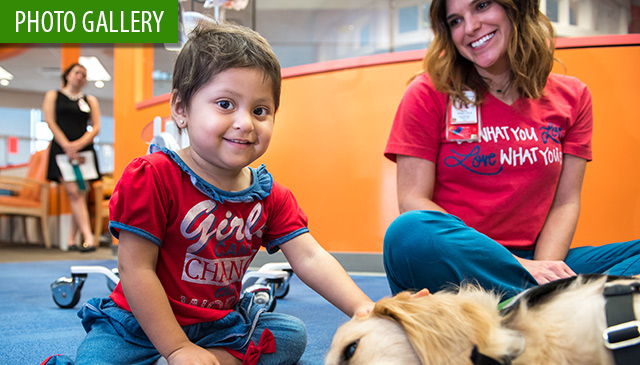 On July 9 the Cancer Center clinic surprised outpatients with a visit from Elsa, one of Texas Children’s three therapy dogs.
On July 9 the Cancer Center clinic surprised outpatients with a visit from Elsa, one of Texas Children’s three therapy dogs.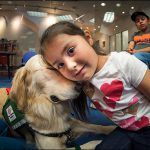
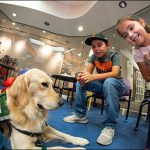


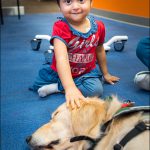


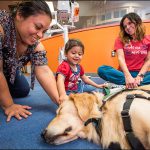
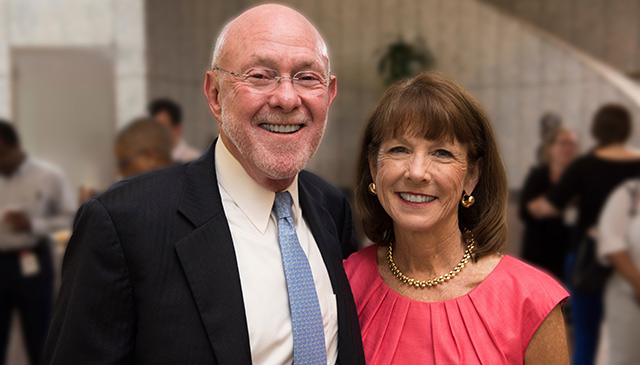 Texas Children’s Cancer and Hematology Centers is pleased to announce Dr. Susan Blaney has stepped into the role of director, effective July 1, while Dr. David Poplack transitions to serve as associate director of the Cancer and Hematology Centers and director of Global HOPE (Hematology-Oncology Pediatric Excellence), an outreach program aimed at improving pediatric cancer treatment in sub-Saharan Africa.
Texas Children’s Cancer and Hematology Centers is pleased to announce Dr. Susan Blaney has stepped into the role of director, effective July 1, while Dr. David Poplack transitions to serve as associate director of the Cancer and Hematology Centers and director of Global HOPE (Hematology-Oncology Pediatric Excellence), an outreach program aimed at improving pediatric cancer treatment in sub-Saharan Africa.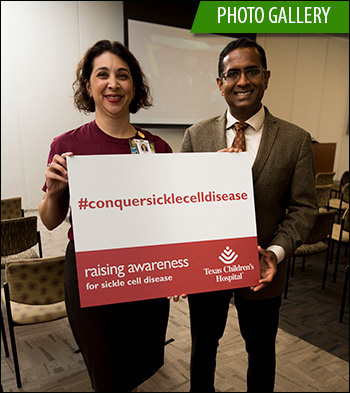 For the second consecutive year, Texas Children’s Sickle Cell Center hosted a celebration in honor of World Sickle Cell Day. On June 19, sickle cell patients, families, physicians, researchers and others joined forces to raise awareness about sickle cell disease, an inherited red blood cell disorder that affects about 100,000 Americans and many more worldwide.
For the second consecutive year, Texas Children’s Sickle Cell Center hosted a celebration in honor of World Sickle Cell Day. On June 19, sickle cell patients, families, physicians, researchers and others joined forces to raise awareness about sickle cell disease, an inherited red blood cell disorder that affects about 100,000 Americans and many more worldwide.